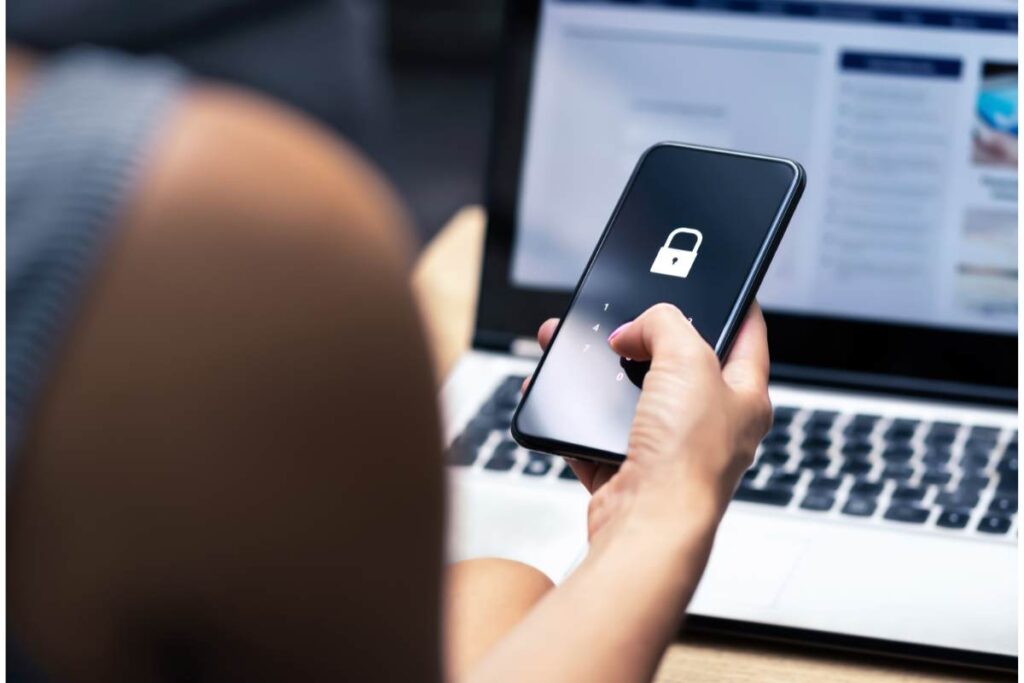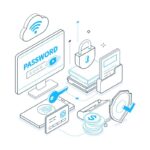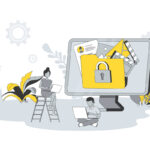Computer Security Tips to Protect Your Digital Life
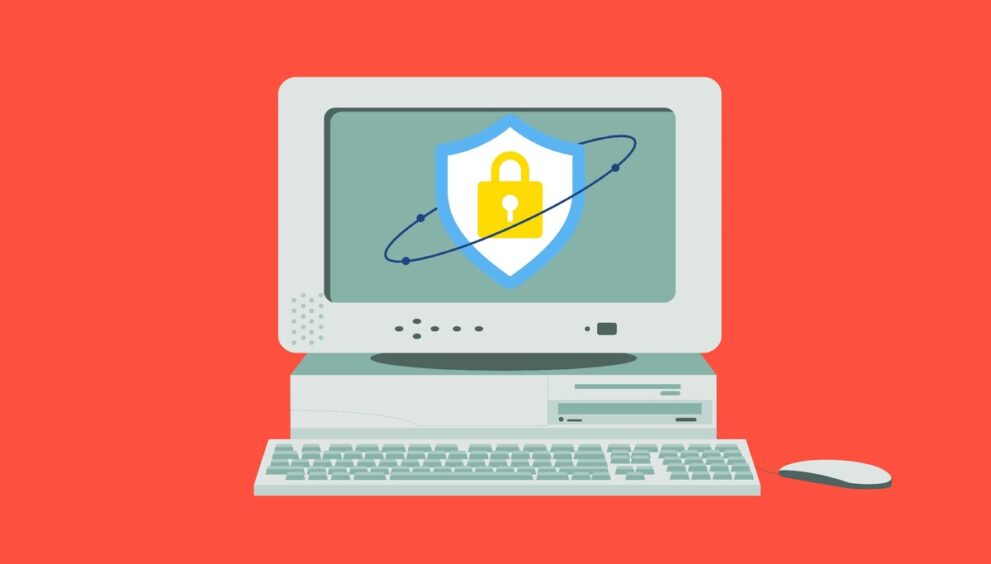
The significance of computer security is growing as the world becomes more digital. It’s critical to take precautions to safeguard your computer and data more than ever because hackers are growing more skilled, and cyberattacks are increasing.
Here are some pointers to assist you in doing that.
1. Employ secure passwords
Using strong passwords is one of the most crucial things you can do to safeguard your computer. A minimum of eight characters long, mixed-case, lowercase, numeric, and symbol-filled password qualifies as strong. Refrain from using passwords across accounts, and avoid words that can be easily guessed, such as your name or birthday.
2. Maintain software updates
Through flaws in out-of-date software, hackers can access your computer in one of the simplest methods possible. Because of this, it’s crucial to maintain the most recent versions of all your software, including your operating system and web browser. It’s crucial to apply software updates as soon as they become available because most contain security fixes.
3. Utilize a firewall.
A firewall is a piece of software that assists in keeping unauthorized users away from your computer. By preventing unauthorized inbound connections, it does this. Most PCs already have a firewall installed, but it is crucial to ensure it’s activated and set up correctly.
4. Take extra care with email attachments
Email attachments are among the most popular ways to spread viruses and other dangerous software. Ensure you trust the sender and are familiar with the file before opening attachments. If unsure, you may run an antivirus program on the file before opening it.
5. Be cautious when downloading.
It can be risky to download things from the Internet. Ensure you know the file and can trust the source before downloading anything. If unsure, you can always run an antivirus program on the file before downloading it.
6. Be careful when you visit links
It can be risky to click links in emails and on websites. Links from rogue websites that could infect your computer with viruses are a common tactic hackers use.
Updating Your Software and Operating System
Keeping your operating system and software up to date is critical to maintaining the best performance and security.
Here are some pointers to keep you informed of updates:
- Make sure that your software and operating system are updated automatically. If you do this, you’ll always use the most recent version with security updates.
- Pay attention to notifications of updates. Install updates as soon as they become available.
- Contact the program publisher or developer immediately if you have doubts about an update’s legitimacy.
- Before installing updates, backup your data if something goes wrong.
Remembering these easy guidelines can improve your computer’s safety and smooth operation.
Utilizing Secure Passwords
Passwords are important in terms of computer security. Adopting strong passwords is one of the most fundamental and crucial things you can do to protect your accounts because they are so crucial.
Unfortunately, it might be challenging to remember strong passwords. Because of this, it’s crucial to use passwords that are both reliable and simple to remember.
Here are some pointers to get you started:
- Use a mix of symbols, numbers, and upper- and lowercase letters.
- The longer your passwords, the better.
- Steer clear of utilizing phrases like your name, birthday, or preferred sports team.
- Avoid using the same password on several accounts. All of your accounts are vulnerable if just one of them is compromised.
- To keep track of your passwords, use a password manager. If you manage several accounts, this can be helpful.
You may choose secure passwords that are simple to remember by paying attention to these straightforward suggestions. So spend a few minutes today selecting secure passwords for your accounts. It’s among the best ways to secure your online activities.
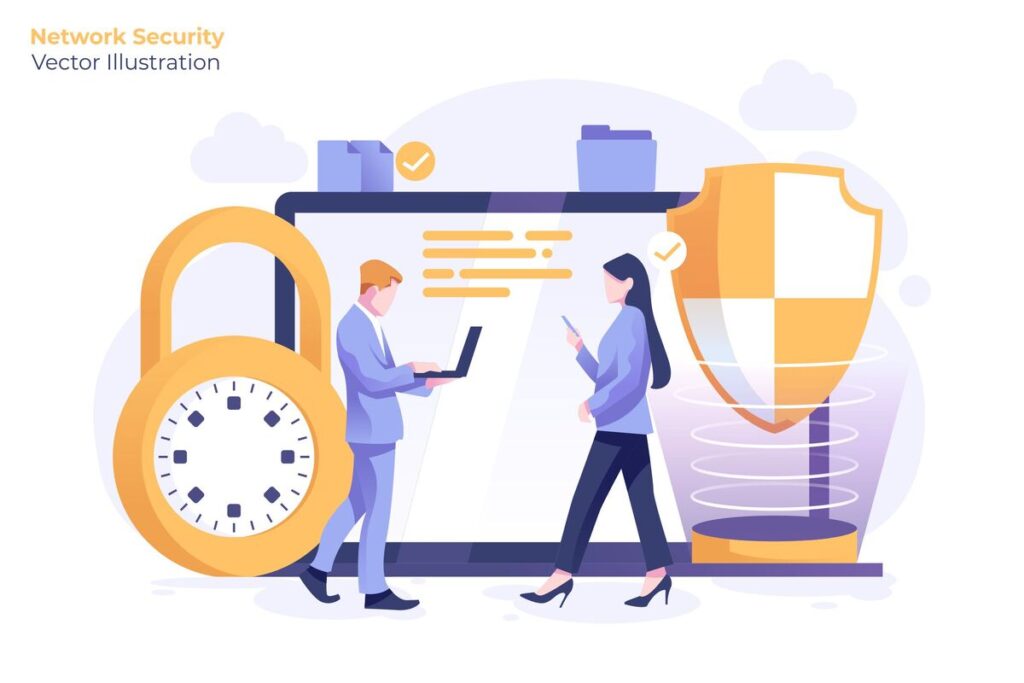
Adding Security to Your Wireless Network
The requirement to safeguard wireless networks has increased along with their widespread use. Bad actors can use unsecured wireless networks to obtain confidential data or cause havoc on your network.
Here are six suggestions for securing your wireless network and safeguarding your data.
1. Use a secure password
Using a strong password is one of the most crucial things you can do to secure your wireless network. At least eight characters, with a mixture of letters, numbers, and symbols, should make up a secure password. Do not use words or phrases that are easily guessed, such as your name or birthdate.
2. Employ encryption.
For the security of your network, wireless encryption is essential. Anyone within range of your network can eavesdrop on your traffic if it is not encrypted. To protect your data, ensure WPA2 encryption is enabled on your router.
3. Use a firewall
By preventing incoming traffic from hostile sources, a firewall can assist in defending your network against attacks. Make sure your router has a firewall enabled and is up to date.
4. Turn off the SSID broadcast.
By blocking SSID broadcasts, you can make it more challenging for a user to identify and connect to your wireless network. You may accomplish this through the router’s settings.
5. Modify the administrator password, if necessary.
The default administrator password that most routers ship with is simple to decipher. To prevent unwanted access to your router’s settings, change this password to something secure and one-of-a-kind.
6. Continue to update the firmware on your router.
Manufacturers frequently release firmware upgrades for routers to fix security flaws. To ensure that your network is as safe as possible, keep the firmware on your router up to current.
Keeping Your Web Browser Secure
Your web browser serves as your portal to the Internet. Thus security should be a top priority.
Here are seven ideas to get you started:
1. Always update your browser
Use the most recent version of your web browser, please. It is crucial to safeguard your computer because newer versions typically have greater security.
2. Employ a safe browser
Certain web browsers offer greater security than others. Think about a browser’s security features before choosing it.
3. Make use of security tools
Most web browsers contain security features that might aid in defending you against attacks online. Make sure these capabilities are enabled in your browser’s settings.
4. Avoid clicking on dubious links.
Only click on a link in an email or pop-up advertisement if you are certain it is secure. These connections could take you to harmful websites that might infect your computer.
5. Be cautious when downloading.
You should only download files from websites if they are secure. Use a firewall. These files can contain malware that harms your computer.
6. By preventing inbound connections from harmful websites
A firewall can aid in defending your computer from internet threats.
7. Use antivirus software.
Antivirus software can assist in keeping viruses off of your computer. Maintain the most recent version of your antivirus program.
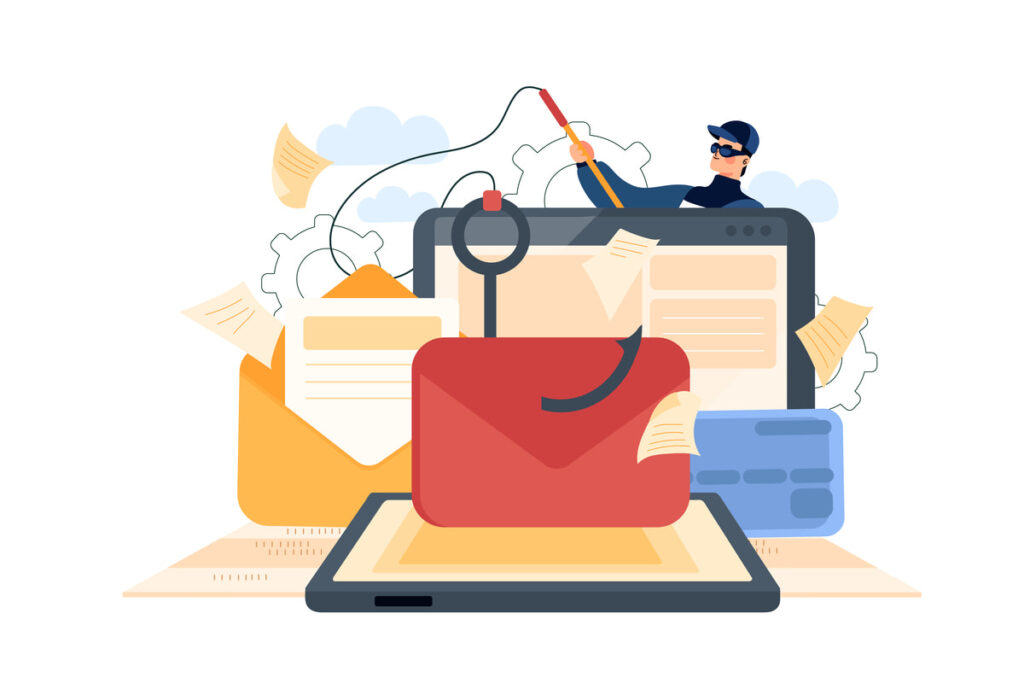
How to Avoid Phishing Scams
Although most individuals know phishing scams, many are unaware of how to avoid them. Phishing is internet fraud when perpetrators send emails or messages pretending to be representatives of reputable businesses to dupe victims into providing them with critical information. Knowing how to safeguard yourself is critical because these frauds are getting increasingly sophisticated.
To prevent being a target of a phishing scam, heed these recommendations:
1. Be wary of unauthorized calls, messages, or emails.
Be wary if you get an unexpected email, text, or phone from a business or person. Don’t open any attachments or links, and avoid disclosing personal information.
2. Avoid entering your data in a pop-up window.
Be extremely wary if a website or pop-up window requests that you provide personal information. Genuine businesses won’t enquire about you in this manner.
3. Before entering your information, double-check the URL.
Please ensure the website’s URL begins when inputting sensitive data. It shows that the website is safe and that your data will be encrypted.
4. Check for grammatical and spelling mistakes.
Phishing emails are frequently hastily written by criminals. Therefore they may need grammar and spelling corrected. Emails with errors of this nature should be treated with suspicion.
5. Watch out for phony email addresses.
Criminals frequently construct email addresses that mimic those of real businesses. For instance, an address can appear to be from PayPal but be paypal@scammer.com. Any email that arrives from an unfamiliar address should raise suspicions.
6. Avoid downloading attachments from shady communications.
Don’t open any attachments in emails from senders you don’t recognize. The malware in these attachments may damage your machine.
Taking Care of Your Mobile Devices
Today, most of us rely heavily on our mobile devices to stay connected and complete our work. But as our reliance on these gadgets has grown, so has the chance of them being stolen or lost. We’ll provide ten recommendations in this blog article to assist you in safeguarding your mobile devices and data.
- Make sure your password or passcode is secure. The first and most crucial step you can take to safeguard your device is to do this. Ensure your passcode or password is lengthy, distinct, and challenging to crack.
- Make use of a safe lock screen. Use a secure lock screen in addition to a strong password or passcode. It will make it more difficult for someone to use your smartphone if lost or stolen.
- Make your device secure. If your device is lost or stolen, encryption will help safeguard your data.
- Use a tool to lock and wipe remotely. A remote lock and wipe tool can enable you to remotely lock the device and erase all of your data if lost or stolen.
- Install software with caution. Keep your software up to date, only install apps from reputable sources, and read the permissions that each app requests before installing. Maintaining software updates is crucial for security. Make sure your operating system and applications are up to date.
- Employ a VPN. When using public Wi-Fi, a VPN can help protect your data.
- Watch out for phishing fraud. Scams involving phishing are frequent and can be extremely sophisticated. Recognize phishing scam warning signals, and avoid clicking links or opening attachments from unverified sources.
- Don’t keep private information on your device. Avoid storing sensitive data on your smartphone. Make sure it’s encrypted if you must.
- When sharing your device, use caution. Be cautious about who you let use your smartphone, and don’t give access to your data.



